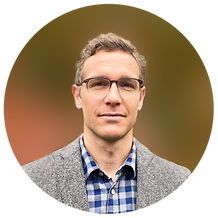



Gloria Dykstra
I am a graduate of Seattle University’s Master of Arts in Existential Phenomenological Therapeutic Psychology program (2008). I also hold a Bachelor’s degree in Sociology from the University of Washington (2005). I started out providing mental health counseling and drug & alcohol treatment to youth and families in south Seattle (2007–2010) who were dealing with generational trauma, immigration trauma, systemic oppression and poverty. This included in-home therapy for children and families, working as the full-time therapist at an alternative high school and leading therapy groups with young adults. Through experiencing the systemic harms committed by the services meant to provide 'help', I moved more fully into an analysis of these systems over time. This brought both Wayne and I to the study of critical psychologies, and our move in 2011 to Dublin, Ireland where Wayne completed his Ph.D. in Liberation Psychology.
I approach client work with the view that the relationship between therapist and client is paramount (existential/humanist training).
My work is always informed by the foundations of existentialism and Liberation Psychology, so sessions are often interlaced with conversations about the larger systems which make up your full context—cultural familial background, race, gender, sexuality, historical trauma, workplace and political setting.
Through further training in Somatic Experiencing™ (SE) I have seen great power in the psycho-neurobiological study of the way , trauma can be stored in the body. This work applies to acute, developmental, and intergenerational trauma, as they are stored in the nervous system.
EXPERIENCE SUPPORTING CLIENTS WITH:
Complex Trauma
Traumatic loss/Complicated Grief
Substance abuse and misuse
Self-medication
Depression/Despair/Malaise
Anxiety/Stress
Meaninglessness
Life Transitions
Parenting support
Racialized and Intergenerational Trauma
Relationship Concerns/Communication
First Responder Culture
Sexual Abuse
Trans-affirming care
Recovering from Religious Fundamentalism/Rigid Ideologies
Elite Athletes/Performance Pressure
TREATMENT APPROACHES
Attachment-based
Psychodynamic
Psychoanalytic
Culturally-Sensitive
Existential
Feminist
Liberation Psychology-informed
Relational
Somatic
Trauma-Informed
PUBLICATIONS
Imagination Praxis: White Anti-Racist Culture Building, By Gloria Dykstra and Cristien Storm
TRAINING
First Responder Health - Occupationally Aware Clinicians 2024
Intensive Training, Acceptance and Commitment Therapy ACT 2021
The Psychobiology of Oppression Workshop 2019
Certification in Cultural Somatics, June 2019
Certification in Psychological First Aid 2019
Affirmative Mental Health Care for Transgender Clients, 2017
International Society for the Study of Trauma and Dissociation 2021
Somatic Experiencing, Beginner 1, 2 and 3, 2019- 2021
Level 1 Certified Emotion Focused Therapy, 2021
Dually-Licensed in Washington State (LMHC) and Vancouver, BC, Canada (RCC, BCACC)

Dr. Wayne Dykstra
I earned a PhD in Psychology from University College Dublin (2015), where my research focus was the history and philosophy of psychology (my dissertation was titled “The Emergence, Transfer and Development of Liberation Psychology: A Narrative Inquiry”).
Prior to doctoral studies, I completed a Master of Arts degree in Existential-Phenomenological Therapeutic Psychology at Seattle University (2008). I worked as a mental health and chemical dependency therapist for children, young adults and families in South Seattle for four years prior to moving to Dublin, Ireland in late 2011.
My experience providing psychotherapy has been greatly enhanced through my academic work, and I'm happy to speak with you about this. You can expect therapy sessions to be conversational in style and involve humour, the careful examination of your feelings, your history, bodily experience, and personal narrative.
Outside of my practice, I am passionate about composing music, the outdoors, running, and being a father of two.
EXPERIENCE SUPPORTING CLIENTS WITH:
Substance Use Concerns
Career Support
Depression/Sadness/Malaise
Anxiety/Stress
Life Transitions
Parenting Support
Racialized and Intergenerational Trauma
Relationship Issues
Sexual Abuse
Trans-affirming care
Men's Issues
Sexuality
Recovering from Religious Fundamentalism/Rigid Ideologies
Epilepsy and Seizure Disorders
TREATMENT APPROACHES
Attachment-based
Existential-Phenomenological
Feminist
Liberation Psychology
Humanistic
Culturally-Sensitive
Trauma-informed care
TRAINING
The Body Keeps Score-Trauma Healing (with Bessel van der Kolk MD)
Clinical Supervision - Level 1: Foundational Knowledge
Gabor Mate’s "Healing Trauma and Addiction"
Indigenous Canada course through the University of Alberta Faculty of Native Studies 2020-2021
Including recurring Continuing education in Suicide Prevention, Law and Ethics and gender-affirming care
Wayne and Gloria’s approaches are both deeply personal (our feelings and experiences matter to us and should be honored as such) and social (our lives are lived out in the world– and this context effects how we think of ourselves.). As we are passionate about challenging the oft-repeated error of construing counseling as only about one’s “mental” health, it is vitally important that we work together to address your physical, emotional, relational and communal health as well.
Psychotherapy allows for the deep recognition of self that enables one to become more intimately available for others. So many of us struggle with isolation, particularly in cities like Vancouver (and Seattle). As such, we feel psychotherapy is an important aspect of overcoming this isolation in order to facilitate a deeper sense of community. This type of engagement leads not only to positive personal change, but social transformation as well.
Our Work
To understand what makes our practice different, and why Wayne or Gloria may be a good fit for you, a little explanation about what we do
might be helpful.
After many years working in community mental health, we went searching for deeper learning around systems of power within Psychology and liberation. Our ongoing study, and Wayne’s doctoral work, further shifted and deepened our counseling work. Both Gloria and Wayne find that psychologists and counselors are often too quick to consider folks’ concerns solely as matters of their personal psychology, (which can risk being overly reductionistic). Rather, as Wayne’s research explored, there is a growing trend to think more holistically, socially, and politically, about our experience.